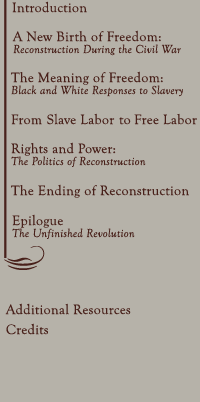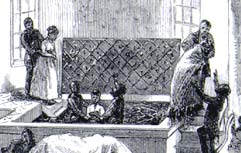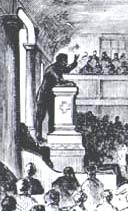




Building
the Black Community:
The Church

Baptismal
ceremony at the First African Baptist Church in Richmond.
(Harper's Weekly, June 27, 1874)
The creation of autonomous black churches was a major achievement of the Reconstruction era, and a central component of blacks' conception of freedom.
The first institution fully controlled by African-Americans, the church played a central role in the black community.
 |
Before the Civil War, many rural slaves had held secret religious meetings outside the supervision of their owners. Other
slaves, along with free blacks, had belonged to biracial congregations
controlled by whites, many of which required black members to sit
in the back of the church or the galleries during services. |
A place of worship, the church also housed schools, social events, and political gatherings, and sponsored benevolent and fraternal societies. Black ministers also came to play a major role in Reconstruction politics.
Copyright
2003